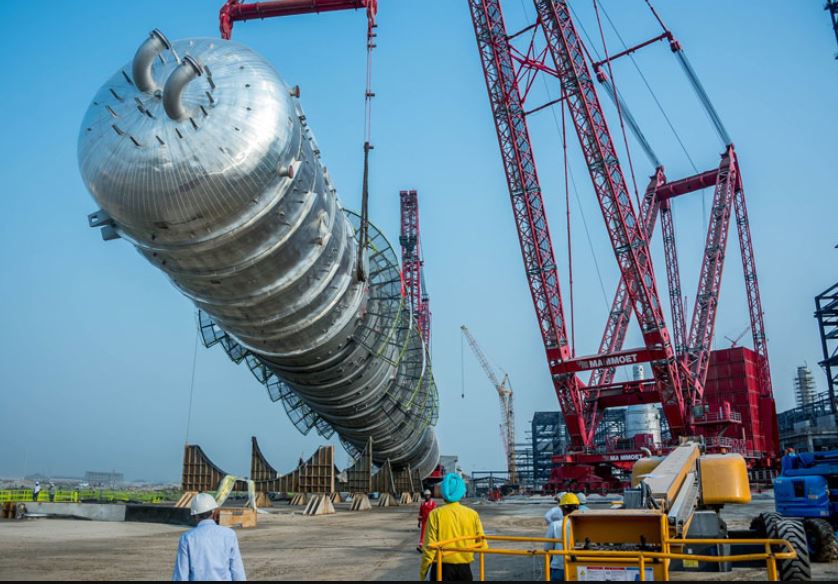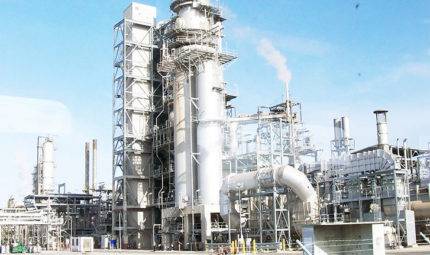Oil Dependence in Nigeria: Ben Bruce Murray, a prominent figure in Nigerian politics and economics, recently took to Twitter to share his thoughts on the state of the Naira and Nigeria’s reliance on crude oil as a source of revenue. In his statement, he highlighted the challenges faced by the Nigerian economy and urged citizens to change their consumption habits.
The Naira’s Struggles Despite Crude Oil Production and Population Discrepancy
Murray’s statement underscores a critical point: the Naira’s value is facing challenges, and even increased crude oil production won’t necessarily lead to its rise. He points out that the Buhari government took funds in advance, which has affected the country’s financial stability. This highlights the reasons behind the Naira’s struggles despite Nigeria’s crude oil production.
In Murray’s Twitter statement, he draws attention to the fact that Nigeria produces around 1.7 million barrels of oil per day to support a population of over 200 million people. In comparison, Angola, with just 15% of Nigeria’s population, produces more oil. This particular assertion sheds light on an analysis of this demographic and production imbalance and its implications for Nigeria’s economy.
Redefining Nigeria’s Economic Salvation
Murray‘s statement also calls for a shift in perspective, suggesting that oil dependence or relying solely on oil for economic salvation is not a sustainable approach. He emphasizes the importance of supporting “Made in Nigeria” goods and services. Hence, it is imperative for our nation to begin exploring the alternative economic pathways advocated by Murray in order to strengthen the Naira and stimulate economic expansion.
Nigeria’s Overreliance on Oil: A Distraction from Other Revenue Sources
Ben Bruce Murray‘s recent statement sheds light on Nigeria’s excessive focus on oil as its primary source of revenue. We are now deep in the pitfalls of this one-dimensional economic approach, highlighting the need to explore alternative sources of income.
Therefore, the path to a prosperous Nigeria lies in exploring untapped resources and sectors while ensuring these resources benefit the nation as a whole. Diversifying Nigeria’s economy is essential to ensure long-term growth. We present arguments for the development of policies that directly target sectors beyond oil. For instance, we can discuss how agriculture, technology, and manufacturing sectors can significantly contribute to the nation’s GDP if properly supported and nurtured.
Good Policies vs. Sabotage and Mismanagement
Nigeria’s government frequently introduces promising policies to foster economic growth and sustainability. However, these policies often fall victim to sabotage or mismanagement. There has been a huge disconnect between well-intentioned policies, their actual implementation or an outright sabotage of policies to enhance personal gain. This pattern of behavior lacking in patriotism is often hinders Nigeria’s progress. It is like practically shooting oneself in the foot. Indeed, how can we fathom the involvement of three Nigerian citizens aiding and abetting a foreign company in a scheme to defraud their own nation? This perplexity becomes even more pronounced when these individuals are government officials who have taken solemn oaths to serve and safeguard the interests of their country.
Effective policies are only as good as their implementation. The importance of stringent oversight and accountability in executing Nigeria’s policies is highly important. Failing to adequately implement sound policies can lead to dire consequences, potentially plunging the nation further into an economic quagmire. The repercussions of such negligence can have far-reaching and devastating effects on the country’s overall economic development.

Nigeria’s Billionaires and a Stagnant Nation
Nigeria has seen individuals accumulate immense wealth, while the nation itself struggles with economic stagnation. This phenomenon is only showcasing how the country’s wealth distribution is skewed and the urgent need for governmental policies that prioritize the nation’s growth rather than the enrichment of a select few.
It is not merely a matter of policy formulation; it is about robust oversight and enforcement. The government must assume a vigilant role in ensuring the effective implementation of its policies by all means necessary. A failure to do so perpetuates the existing inequalities and undermines the broader societal well-being.
Moreover, it is essential for the government to be self-reflective and transparent, serving as a model of self-accountability and prudency. When the government upholds these values, it sets a precedent for the entire nation to follow, fostering a culture of accountability and responsibility. This approach promotes not only the effective execution of policies but also a sense of trust and credibility in government institutions. To truly serve the interests of the people, the government should not only be the architect of policies but also the custodian of their just and equitable execution, acting as both a measure of self-truth and a watchful guardian of its own actions to ensure the betterment of the nation as a whole.

Nigeria’s Overreliance on Crude Oil: A Closer Look at the Numbers
Nigeria has long been known for its heavy dependence on oil as a primary source of revenue, but let’s examine why this is no longer sustainable. Oil accounts for a substantial portion of the country’s income, but the stark reality is that this source has faced significant challenges. For instance, when analyzing the past few years, it becomes evident that not only has Nigeria struggled to maintain stable oil production due to various factors, but it has also grappled with issues like oil theft and pipeline vandalism, further diminishing the returns.
Crude Oil Dependence Vs Alternative Revenue Sources: The Hidden Potential
Nigeria is endowed with vast resources and opportunities that are underutilized or overlooked. Agriculture, for example, has the potential to be a significant revenue source given the nation’s fertile land and favorable climate. The technology sector, with its young, tech-savvy population, can drive innovation and create jobs. Furthermore, manufacturing, if properly supported, can help reduce the country’s reliance on imports and boost exports, thereby increasing revenue. By investing in these sectors, Nigeria can tap into new revenue streams and diversify its economic base.
Growing Nigeria’s GDP: The Path to Prosperity
To grow Nigeria’s GDP and overall wealth, a fundamental shift is required. It’s essential to recognize that Nigeria’s economic potential extends far beyond crude oil. With prudent policy measures, strong governance, and investments in agriculture, technology, and manufacturing, the nation can foster sustained economic growth. Moreover, initiatives like improving infrastructure, promoting tourism, and harnessing the nation’s creative industries can further expand the sources of revenue and offer a brighter economic outlook for Nigeria.
Table of Contents
Discover more from OGM News NG
Subscribe to get the latest posts sent to your email.














